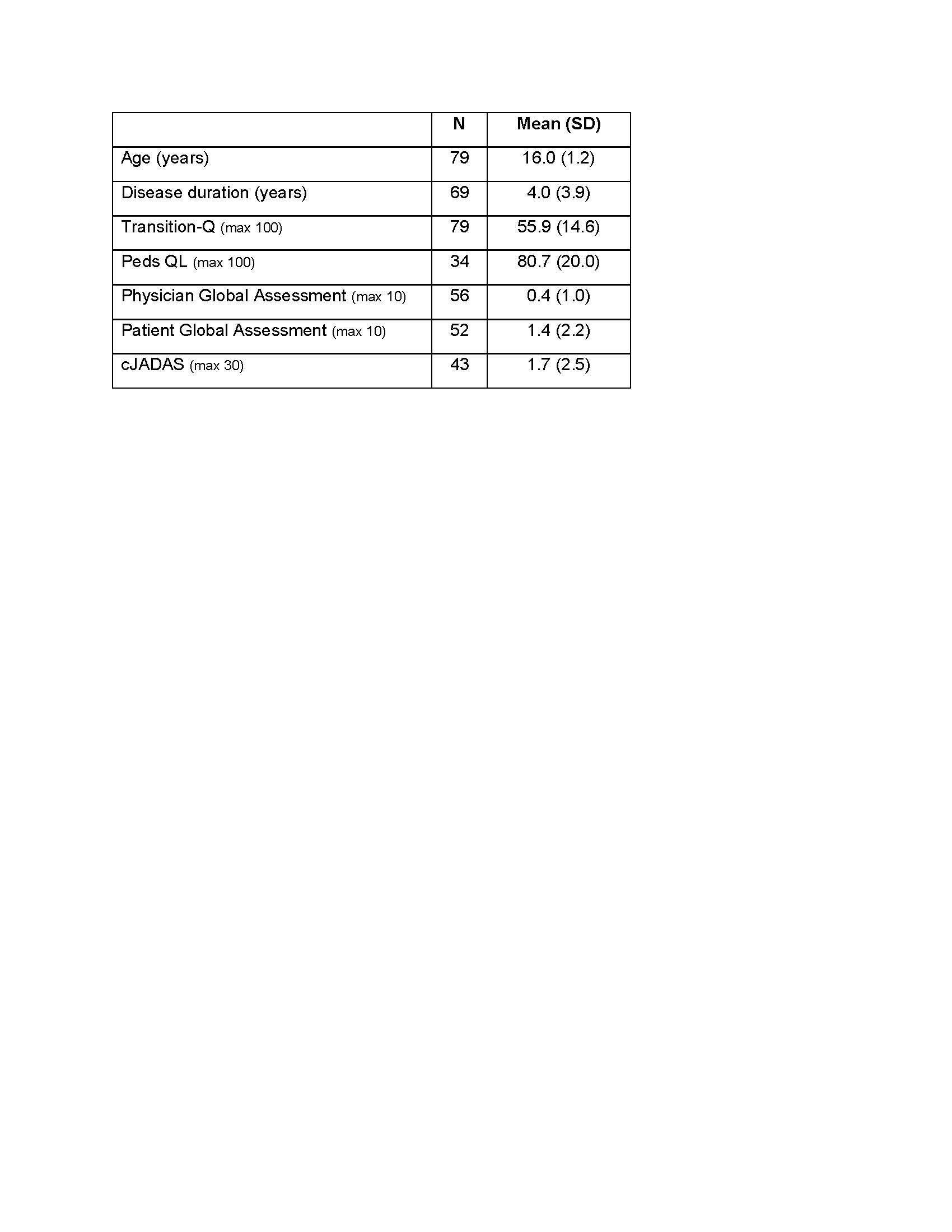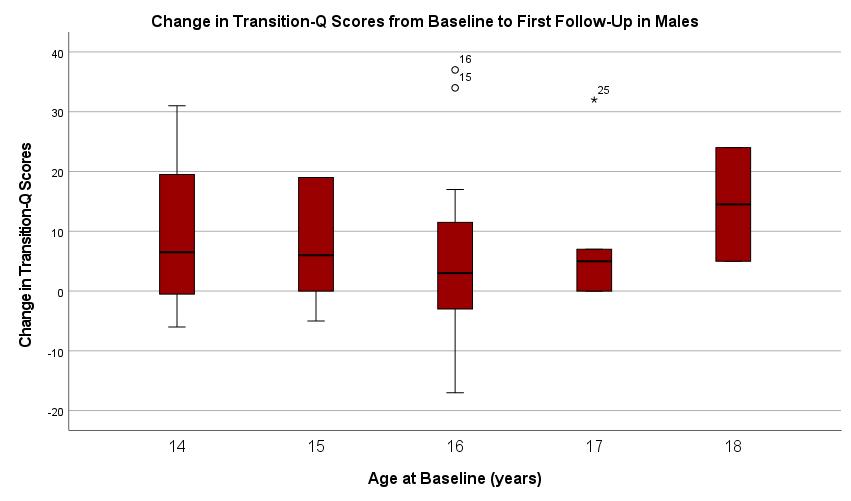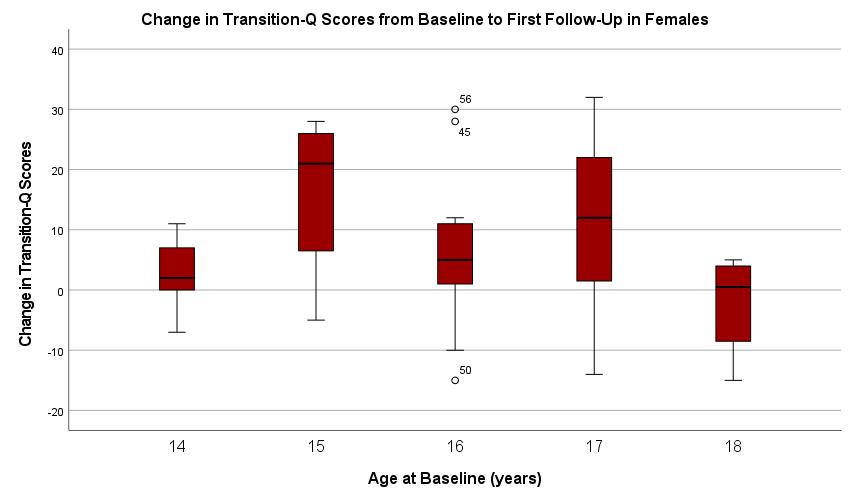Session Information
Session Type: Poster Session A
Session Time: 9:00AM-11:00AM
Background/Purpose: For adolescents, the transition from pediatric to adult rheumatology care is associated with increased health risks, poor disease control and loss to follow-up. Optimizing adolescents’ ability to manage their own health independently is of utmost importance and ideally begins years before the actual transfer to adult care. Different models of transition programs to improve patient self-management skills have been proposed and implemented, but best-practices have not been identified. We aimed to assess how a multidisciplinary, patient-centred, individualized approach to improving self-management skills affects changes in transition readiness over time among adolescents with JIA and jSLE.
Methods: Patients 14-18 years old with JIA or jSLE seen in the multidisciplinary pediatric rheumatology transition clinic at McMaster Children’s Hospital were invited to participate in a prospective study. At each clinic visit, patients are seen by a pediatric and adult rheumatologist together, as well as a nurse, physiotherapist, and child life specialist. Consenting patients completed the Transition-Q, a validated, self-administered 14-item questionnaire which assesses healthcare self-management skills, at consent and at follow-up (FU) clinic visits. Questionnaires are scored from 0-100 with higher scores reflecting higher skills/independence. Responses to individual questions on the TRANSITION-Q identify areas of need and, in partnership with a member of the healthcare team, goals are set for the next clinic visit. Transition-Q scores were determined at baseline and follow-up visits for all participants and then sub-grouped by age and sex. Clinical characteristics (disease duration, disease activity, quality of life) were collected at baseline.
Results: Of 79 participants who completed the Transition-Q at baseline and ≥1 follow-up, 51 (65%) were female and 64 (81%) had JIA (Table 1). Mean (SD) Transition-Q scores improved by 8.0 (12.7) points between baseline and first FU, and 5.9 (10.1) (n=36) between first and second FU. Overall, 75% of males’ Transition-Q scores stayed the same or improved from the baseline to first FU compared to 80% of females. Between the baseline and second FU, 92% (n=11/12) of males improved while 96% (23/24) of females improved. Changes in Transition-Q scores for males and females over the first follow-up period are shown in Figures 1 and 2.
Conclusion: In this sample of adolescents with low disease activity, Transition-Q scores improved over time. Males and females do not appear to have the same trajectory of improvement across age groups, and there is considerable variability in improvements within and between age groups. These results suggest that goal setting to improve self-management skills requires an individualized approach within a multidisciplinary clinic. Improvements are evident in adolescents as young as 14, and there is room for ongoing improvement even after adolescents reach 18 years when they transfer to adult care.
To cite this abstract in AMA style:
Borovsky D, Heessels L, Cellucci T, Heale L, Herrington J, BEATTIE K, Batthish M. Trajectory of Progression in Transition Readiness in Adolescents with JIA and jSLE [abstract]. Arthritis Rheumatol. 2023; 75 (suppl 9). https://acrabstracts.org/abstract/trajectory-of-progression-in-transition-readiness-in-adolescents-with-jia-and-jsle/. Accessed .« Back to ACR Convergence 2023
ACR Meeting Abstracts - https://acrabstracts.org/abstract/trajectory-of-progression-in-transition-readiness-in-adolescents-with-jia-and-jsle/



